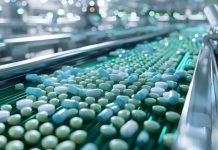Researchers at the Department of Inorganic and Physical Chemistry (IPC) at the Indian Institute of Science (IISc) have innovated an enzymatic platform capable of transforming abundant and inexpensive fatty acids into valuable hydrocarbons known as 1-alkenes, which are promising biofuels.
The IISc notes that due to the limited availability and environmental impact of fossil fuels, there is growing interest in sustainable fuel pathways involving hydrocarbons.
In prior research, the IISc team isolated and characterized an enzyme named UndB, found in the membranes of certain bacterial cells, which converts fatty acids to 1-alkenes at an unprecedented rate.
However, the enzyme’s efficiency was hindered as it became inactive after only a few cycles, primarily due to the inhibitory effect of H2O2, a byproduct of the reaction.
In their recent study published in Science Advances, the team addressed this issue by incorporating another enzyme, catalase, into the reaction mix. Catalase breaks down H2O2, thereby enhancing UndB’s activity 19-fold, increasing its turnovers from 14 to 265 cycles.
PhD student at IPC, Tabish Iqbal, explained that they created an artificial fusion protein by combining UndB with catalase through a fused genetic code introduced into E. coli bacteria via plasmids. Under optimal conditions, these E. coli bacteria act as whole-cell biocatalysts, converting fatty acids into 1-alkenes. The biocatalyst demonstrated the ability to convert a variety of fatty acids with different carbon chain types into 1-alkenes and also produced styrene, which is crucial in chemical and polymer industries.
As reported by thehindu.com, the team has applied for a patent for their engineered protein and whole-cell biocatalyst and is seeking industry partners to scale up the platform for large-scale production.
































